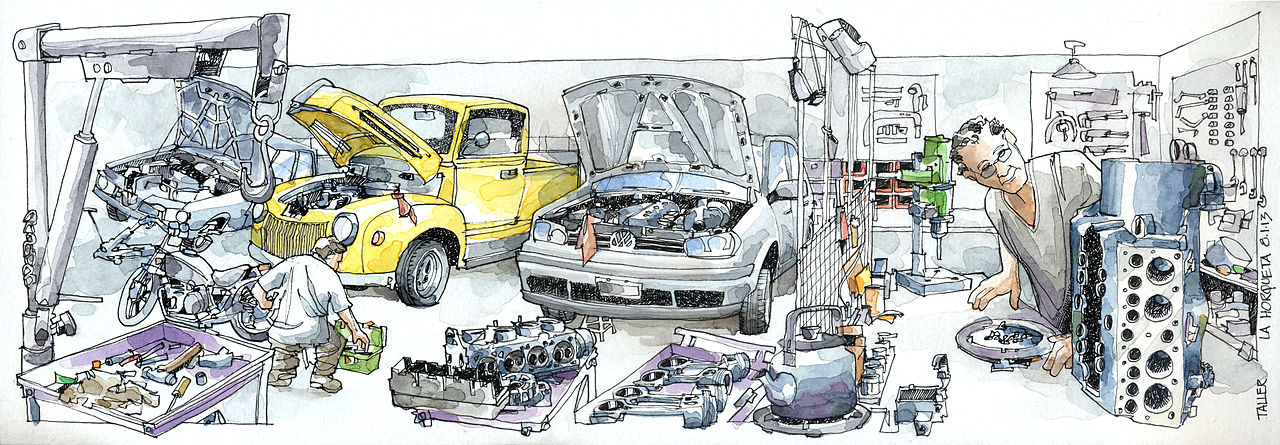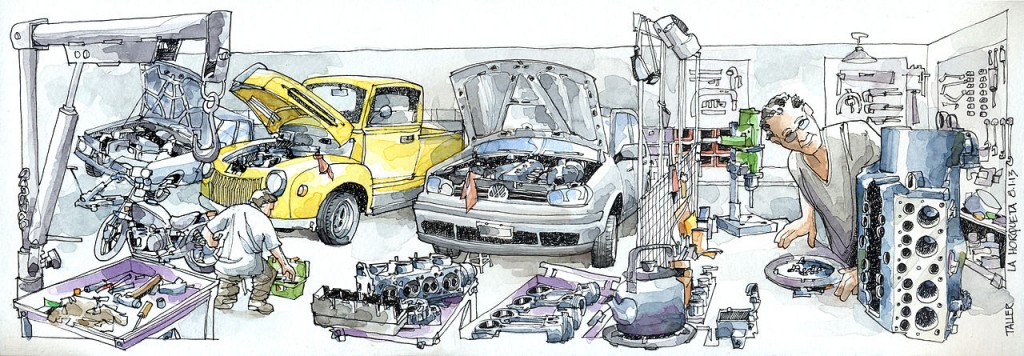In this blogpost, Abhishek Sood, writes about the process which the manufacturing industries are adopting to create a monopoly in their trade. The author also writes about the scenario in other countries and then analyzes the present situation in our country, and also mentions the procedure that has to be followed to file a complaint, who can complain and fees to be paid.
Introduction
The evolution of E-commerce with the prolog of Big Billion Day or the Great Indian Diwali Sale by Flipkart and Amazon respectively has changed the buying behavior of the consumers. Anything ranging from car to bike to camera to washing machine etc. can be purchased online with an ease of a click. Whenever a buyer buys a product, it is bought with a perceptive that once the money for the product is paid, the seller or manufacturer should not be able to dictate how to use it. The buyer gets an exclusive right to improve the thing, slice it, get it repaired or upgrade.
But now manufacturers tend to refuse to make parts, tools, and repairing information available to consumers and small repair shops. Manufacturers are trying to create a monopoly on repair, and it is against the basic spirit of competition. Many companies, including Apple, refused to sell replacement parts to independent shops. It took a lawsuit to force Apple to offer a battery replacement program for the iPod. In 2012, Nikon sent a letter to their independent service network, stating that they will no longer supply repair parts to anyone except 23 Nikon authorized repair facilities, in order to have an absolute monopoly over the repair of their products.
Position abroad
The Motor Vehicle Owners’ Right to Repair Act, sometimes also known as Right to Repair, is a name for several related proposed bills in the US congress, which would require automobile manufacturers to provide the same information to independent repair shops as they provide to their authorized dealer shops. A version of the bill have generally been supported by independent repair and aftermarket associations and opposed by auto manufacturers and those having an authorized dealership. It was first passed by Massachusetts’s legislature on 31st July, 2012.
Position in India
Desolately, such legislations do not exist in our country. However, The Competition Commission of India (CCI) in Shri. Shamsheer Kataria v. Honda Siel Car India Ltd. in August 2014, announced a path-breaking judgment, holding 14 automobile manufacturing companies liable for anti-competitive practices and abusing their dominant position, by not making the spare parts available in the independent repair shops. Thus, the customers have no other option but to use the services of the authorized dealers. The CCI ordered Original Equipment Suppliers (OESs) to formulate an effective system to sell genuine spare auto parts in the open market and to formulate an effective system to ensure availability of aftermarket spare parts, diagnostic tools and other relevant information in the public domain. The CCI order, enabled consumers to make a choice between independent mechanics and authorized dealers and to help independent mechanics to provide aftermarket services and ensure healthy competition in the market. Thus, it can be seen that the judgment of the court to some extent was at par with the ‘Right to Repair’ Act.
Who Can File a Complaint under The Competition Act of India
Any person, consumer or their association or trade association or a statutory authority can file a complaint before the commission, Central Govt. or a State Govt. Person includes an individual, HUF, firm, company, local authority, cooperative or any artificial juridical person.
Procedure for filing complaint
- The complaint should be in the form of a statement of facts, containing details of the alleged contraventions accompanied by all documents, affidavits and evidence as the case may be.
- The information must contain the legal name and address(es) of the enterprise(s) against whom the complaint is being filed, also the legal name and address of the counsel or other authorized representative, if any.
- Narratives in support of above-alleged contravention, which can help Commission, in an adjudication on the matter for granting interim relief which is being sought.
- The information should be duly signed by the informant. The counsel of the informant can also apprehend his or her signature. It must contain informant’s complete postal address with PIN code, telephone, fax number and also e-mail id. The preferred mode of receiving the reply from the Commission should also be mentioned.
- The above information should be addressed to the Secretary in person or by registered post or courier or fax.
- Only neat photocopies or scanned documents duly certified as true copies may be filed as exhibits or annexure.
For further details on filling the information and the format to be used refer the link
Kindly note: The E-Filling system is under process.
Fees to Be Paid
The complaint must be accompanied by a document which can be used as a proof of payment of the fee:
- 5,000/- for individual or HUF or NGO or Consumer Association or Co-operative Society, or Trust, duly registered under the respective Acts.
- 20,000/- for firms and companies having turnover in the preceding year up to Rs. 1 crore.
- 50,000/- for any other category.
The above fee is to be paid either by tendering demand draft or pay order or cheque, payable in favour of Competition Commission of India (Competition Fund), New Delhi or through Electronic Clearance Service (ECS) by direct remittance to the Competition Commission of India (Competition Fund) Account in:-
Either
Account No. 1988002100187687 with Punjab National Bank, Bhikaji Cama Place, New Delhi- 110066
Or
Account No. CLCA01100002 with Corporation Bank, Bhikaji Cama Place, New Delhi- 110066
For Assistance: In the case of any doubt or need or any help, one can approach Secretariat of the Commission on 011- 23704651.
Conclusion
Thus next time if you want to get your car or bike repaired, and an independent mechanic shows an inability to do it, because of unavailability of spare parts or technological knowhow. The remedy is to approach the CCI following the above procedure. Also, customers can approach appropriate Consumer Forums in order to get the desired relief. Delhi District Forum in one of its order directed HCL to make sure spare parts of laptop model sold should be readily available during expected lifespan of the product and directed it to refund Rs. 28,000/- (after deducting depreciation for 18 months) and pay Rs. 15,000/- as compensation and costs to the consumer.
 Serato DJ Crack 2025Serato DJ PRO Crack
Serato DJ Crack 2025Serato DJ PRO Crack










 Allow notifications
Allow notifications



[…] https://blog.ipleaders.in/right-repair-india/ […]
How new motor vehicle act of 2019 will affect me from working of my motorcycles and cars,
I do all repair on my motorcycles and i restore old motorcycles. can i continue to do them, whether spare parts will be available other than authorised service centre, i too make youtube videos about repairing motorcycles, should i stop doing it or continue doing it.
thanking you
Is there any permission/registration required under the Indian Law before a company can provide aftersale offers at a very minimal price?
Informative data
Is there any act rule or law concerning deficiency in service or repair by automobile companies.
the consumer in india has very less knowledge about automobile industry . they are not aware of rules & regulations that is why these big automotive companies are creating monopoly
very helpful blog .. much appriciated